Kenny Powers said that when a man's on the run he needs to bring one thing along that reminds him of who he really is. There were a few items on my short list. Truth be told the one thing that would probably remind of who I really am the most is the Pontiac. A machine kept running by my very own sweat and blood(y knuckles). Further, of of all my inanimate objects it's the one I've spent the most time with as well. However, size is an issue. Bearing all mitigating factors in mind I ended up choosing this:
Well, not this exactly, but mine is similar with a cheap frame. It's a Beefeater's ad from, I want to say 1998. My domiciles tend to be furnished with eccentric odds and ends. Among my collection of little items is a pair of 1940s mannequin legs and a replica I Dream of Jeannie bottle. There are also a handful of advertisements which struck me for some reason and I bought on ebay and framed. My mentality upon originally purchasing this one was fairly face value. Recently though I've attached a different meaning to it. You've only got so many waking minutes in this world, use them well, don't play it safe. Granted it's not high art and the team of people that created this had one meaning in mind: go out and get wasted, preferably on Beefeaters. If that's not clear enough they didn't do their job very well. For some reason it just evokes more in me.
The gravity of the situation slowly seeped into my mindgrapes a little earlier today. I've made a pretty big move... to say the least. I've been feeling pretty good about it though, if not slightly anxious. Nyesmind's readership is by no means out of this world, but it's been growing to the point wherein a little background may be in order. For those readers who do not know me personally, I have recently made the decision to move from my comfortable surroundings in an upscale South Florida neighborhood to an obscure city in China toward the end of learning to speak Mandarin. It should be noted that save a few key phrases I currently do not at all. You see, my chosen field of study is international affairs. State universities will generally hand these degrees out without the qualifications which might make them meaningful to employers such as the UN, State Department or Freedomhouse. For the graduate programs I'm looking at though, this isn't the case. They want to see proficiency in a foreign language, a great idea and work experience abroad. The latter is going to be quite a trick given China's less than enthusiastic stance on civil society, but one foot in front of the other. The move was prefaced with a two week trip to Hong Kong. I figured, the difference between doing nothing in West Palm Beach and doing nothing in Hong Kong was a matter of languishing or gaining a degree of insight into the country I'd like to study. That leg of the trip was kind of a mixed bag. Attempting to travel on the cheap in one of the world's more expensive cities was difficult. I've slept in the backseat of my car on long roadtrips, I've shivered throughout the night in a tent in the Rockies due to a lack of heavy blankets, I've stayed in a $25 motel room in the middle of nowhere in Texas. This hostel was the most godforsaken lodgings to date. That may be the subject for a different blog, but let's just leave it at each day was capped by coming back to sleep in a tiny closet that smelled of pakistani food and the occasional hint of urine. Then on the last two days of the trip my cell phone was stolen. My Google phone had become a limb. With cheap tourist attractions running thin, no gps and being thoroughly demoralized I succumbed decided to hibernate for the remaining two days. After gracious amounts of Valerian extract, Melatonin and Ambien for the following 48 hours I awoke to navigate the rails of Hong Kong and get to the airport. Dalian has treated me better. Granted it's only been about 24 hours, but this seems like somewhere I'll be able to call home for a little while. I genuinely like Chinese people. Some are dicks, but for the most part it's a pretty friendly culture. Hong Kong was Miami-esque in that it was too international/transient in a weird way. Tsim Sha Tsui didn't even feel like China. When you get that many people who are fresh off the boat from different regions of the country and the world a serious disconnect between the one's mentality and society develops. Yet here, people seem welcoming. While Dalian is a city of 6 million, that's pretty small by Chinese standards and it has the vibe of a small city. Venturing out into the streets doesn't have that grinding effect on the soul like Hong Kong or Shanghai. It's not refreshing like Tallahassee or DC either but hey, you can't win them all. Since my camera is south of Shenzhen, let me try to describe it a little bit for you. As Hong Kong was built up by the British, Dalian was by the Russians. So start by imagining a small city in the far east of Russia. The streets are wide and subject to occasional gusts of cold, dusty wind. The cold isn't a regular cold, it's biting. Filling the streets are Volkswagen taxis from the 1980s, the owners of which have fought a valiant battle against street corrosion and bitter frosts. Traffic is a life and death battle against those meddlesome pedestrians (crosswalks mean nothing), but nobody seems angry about it and you rarely hear people honking their horns. As in Beijing or other Chinese cities the pollution obscures magnificent glass buildings of green and silver and gold, just not quite as badly and not quite as magnificent. What's really nice though is that on this template of Russian architecture and the instant dilapidation of hard scrabble Chinese industry, local officials have done their best to create what's deemed the most livable city in China. Dalian is replete with public parks and ponds. People take their sweater clad dogs for leisurely strolls around half frozen lakes. There are statues filling large roundabouts and all of the old buildings are kept clean. A walk will take you through neighborhoods with distinctly different flavors but all share the same welcoming homeliness. I'd be surprised if they don't exist but I've yet to see those grimy, soulless, spindly, high rise condos so endemic to Chinese cities. This place is something I never could have accurately pictured, but now can't get it out of my head. Of course the vibe is only one part of some. Tomorrow I get a glimpse of my school, and within a week or so start seeing apartments. Hopefully the most liveable city in China remains that way during these next few formative weeks!
As a prelude to my rant we must first accept that while it would be nice to only do business with the good guys, that's not how the world works. If America didn't play ball with autocrats the Big Mac index would be nearly worthless. It is important that the United States act in it's power as dominant state in the international system to play a stabilizing role. Aside from Israel the entire middle east is made up of non-democratic countries. Thus it follows that to play a stabilizing role in that region we have to sell arms and give military aid to autocrats and monarchs at times. It's unavoidable.
This being said, we should consider our relations with autocrats a delicate balancing act as well. What has been the USA's major mark on the world? One can rattle off a healthy list of accomplishments. We've landed on the moon, put the world on wheels, invented the internet and were the first in controlled aviation. But despite our such marvels over the past hundred or so years technological innovation can be found in many great countries. Who's to say that aviation has been more important than the steam engine or the printing press? One might also look to the World Wars or actions in Korea and cite our military might. However, our military prowess and ability to surmount the seemingly insurmountable can be spoken for by others as well (if not to the same degree in certain areas). The difference between the United States and previous hegemons is that we have used our power for good. Under American leadership the international system has transformed from a tool to guarantee freedom of navigation and interstate postal service into something bigger. It has transformed into an intricate and all encompassing regime that strives to better the lives of citizens of the planet earth on a more human level. We have borne witness to the birth of the very concept of human rights and watched democracy and it's associated freedoms spread across the planet. Is the international order always effective at stopping genocide and ensuring basic human rights? Clearly not. But the point is that it was under our watch that the world first recognized the issue and began to tackle it. This is what history books will say about the United States 1000 years from now and it is for this reason that idealism and ideology should not be granted an instantaneous backseat to pragmatism and Coca-Cola! Of course, while we should be proud of such a distinction it is the very same excruciating duality that makes American foreign policy so much more difficult than that of the British a hundred and fifty years before us.
Being the extreme moderate that I am, the aforementioned juxtaposition has been at the forefront of my while following the events in Egypt. On one hand our country should look out for it's interests. In that sense, the toppling of Mubarak does not at first been in our favor. The first and most obvious reason is that to see a friendly regime toppled is probably detrimental to US influence within Egypt. The new government might or might not be on good terms with us. Undermining Mubarak also sets a precedent. Other friendly autocratic regimes have to wonder if they'll be next. You know, those Abrams tanks may come with an OnStar kill switch and the moment people start demanding democracy the turbines shut off “this is OnStar, we've detected a popular uprising in your region and have dispatched international police forces. Also, it seems you're due for a transmission fluid change if you'd like to schedule that at the nearest GM dealership”. Egypt has also been one of the bright spots in terms of policy regarding Israel. Mubarak has enforced a secular regime and consequently peace with Israel. The next government might not. Instability in Egypt is also bad for markets of any sort given that it's home to the Suez canal. Though the prospect of a new government in Egypt selectively closing off the Suez canal is remote, it's scary enough that it should be called into question. The scenario of the US fighting against it's own weapons to open the canal back up had to have been brought up at least once in the White House.
Yet for all these possible drawbacks, cautious followed by open (if not mild) support for the protesters was the right thing to do. Even if the worst comes to pass and an islamist regime finds itself in place in Egypt, something monumental had occurred. Egypt signifies a huge crack in the dam. Liberty is contagious and we now know that the middle east is not immune. The people there demand it and Islamist regime or not one day it will invariably come into being. Moreover, the nightmare scenarios don't seem too likely. Say (and hopefully this is not the case) elections are not held or they're hijacked by forces already in power. The US was in contact with more people than Mubarak. The Pentagon and State Department have had ties with multiple and various levels of the Egyptian military and government for decades. Anybody from the military that would come to power would already have a pro-US proclivity. We would be right back where we started except with the possibility of a better conditions for Egyptians. What would be terrible would be an Islamist faction winning overwhelmingly in elections and then refusing to relinquish it's control of the government. But Egypt is not a fanatically Muslim country and the protesters weren't railing against the West. From everything I've seen elections probably aren't going to bring in Hezbollah.
Moreover, when we are looking at the long term dictatorships just aren't the answer. To my knowledge modern history has never seen an anti-democracy revolution. Once democratic norms are firmly engrained that state will always be on at least reasonable terms with other democracies. Remember the one law like rule of IR: two democracies have never gone to war. And as a rule democracies don't abuse the rights citizens. The pie in the sky dream of a world composed solely of democratic states may not happen within our lifetimes, whose to say in 200 years? Change will come. Either way, the more democracies there are, the less there is to worry about and the more peaceful the world will be (in terms of interstate wars). Basically, what I'm saying is that Egypt and Tunisia are akin to ripping off a bandaid. If the two (or more) become democratic it will have a stabilizing effect on the region 20 years from now and beyond. Why hold back the dam in the middle east? Let's let Chevron ride in the backseat for this trip.
One thing that's struck me about the Hong Kong SAR is the surprising amount of signs forbidding certain actions. Generally they're understandable. For instance in one park there was a sign saying “no lying on the benches”. The idea is to keep homeless people from sleeping in the park. That makes sense to me (particularly given the amount of squatters huts one finds after venturing outside of the more urban areas). But then again signs like these are everywhere. The extent to which it's enforced is debatable, I've definitely seen people breaking some of the rules in view of cameras. In my opinion it says something about a society when they feel the need to articulate these matters. The question is what?
My first thought on the matter is that Asian countries seem to have more societal norms and minor rules than do western countries. Adhering to these norms is generally more important as well. A friend of mine made the mistake of playing a guitar on the beach in Korea one time. The police were were all over that faux pas. Another example is my experience at the Wal-mart in Kunming. There was a very clearly marked exit but the entrance was more difficult to come by. Upon trying to enter in the wrong end I was very promptly turned away. It seemed a little odd to me. Given that the end game is for people to purchase their products why should they care where people enter through? But these are the rules and they must be abided by.
Another item which didn't escape my attention the last time around was that mainland China didn't seem to be as particular about these matters as Korea or Japan. Now it's very possible that this could be a matter of democracies having a greater tendency to be developed than non-democracies, but from what I've seen and read it seems to me that there is a democratic tendency toward nanny statism. Voters like little things like seatbelt laws and banning trans-fats. It makes people feel warm and fuzzy when they walk out of a voting booth thinking they've made life safer for their neighbors. Authoritarian governments on the other hand aren't affected by such things and if you want to smoke in an elevator in Beijing... why not? So possibly it has to do with HKSAR's particular brand of democracy.
My final and favorite theory pertained to Hong Kong's British heritage. The UK after all is possibly the nanny state to end all nanny states. Perhaps the SAR developed these tendencies under the UK's stewardship. It's also possible that those in government and the electorate in general picked up on British norms and these signs developed alongside the current British padded society but separately.
Sadly, I just don't have enough knowledge on the matter to come to a truly educated guess. The history and culture of Hong Kong just came into my periphery a matter of weeks ago and I'm a complete stranger here. From this vantage point it would take a great deal of research for which I no longer have the resources (oh FSU information databases, how I miss you) nor the time. Perhaps at a later date some theory on the evolution of nanny states will be thesis material for an MS. For right now I'll just have to leave it as probably some sort of combination of all three.
All of the following signs were in the same small park:
The two foot deep Koi pond... err, "pool" in which paddling is not allowed:
Post script: if you would allow me beg of your pardon for what may have seemed at times somewhat obfusticated language in the preceding passage. Most of my reading of late has been of the 19th century variety due to it being free of cost on Amazon's Kindle. As they say a shilling saved is a shilling earned! Despite my best efforts to remedy this particular literary ailment, Sir Arthur Conan Doyle's wordage seems to have put a peculiar spin on that of my own quill.
Today I went on a scavenger hunt of sorts. Hong Kong promotes a series of walking tours which take you past historic sites and buildings. From the get go I assumed there was little chance of actually finding everything on the list, so I decided to make a game out of it and see how many I could take pictures of. It didn't go very well. The fail was in large part due to starting out with partial battery on my phone and no physical map. So the hunt could last only as long as 50% battery life on a Google Nexus One switching between GPS/maps, browser, camera and mp3 player. The heritage trail map online was pretty poor as well and matching it up to google maps on my phone was a trick... even for an expert delivery driver. However, the other reason for the fail might ultimately have been a net positive in that it ended up reinforcing something I'd already known about the place. Most of these buildings, actually all of them, were off limits to the public as they were still in use. This includes a Victorian era prison (edit: I was wrong, Victoria Prison closed a few years ago). Hong Kong is so hard up for physical space it's just not practical to turn the old Government House into a full time museum (it's only open to the public two days a year). The point of this trip is to learn first hand about the way society operates here, so I suppose I can't complain too much. Still unfortunate that the most I could see of Government House was the ornate Victorian wrought iron downward facing spikes on the outer wall.
Walls outside Government House. Notice the camera.
Hong Kong's prison. Easy to pin as from the Victorian era from it's name: "Victoria Prison"
Pretty low tech means of keeping people in, shards of glass.
Not quite Alcatraz. There are literally bars, restaurants and even an auto racing club right across the street.
How quickly we've reached this juncture. Despite a nifty way of getting around the great firewall a friend of mine has helped me out with, the question of exactly how close I should allow my blog to get to some Chinese no-nos has been up in the air. Alas, Hong Kong and ambiguity go hand in hand. A brief history of how we got to where we are today. In the first Opium War in the 1840s the British demanded China cede Hong Kong island to British colonial rule permanently. A few decades later the peninsula (Kowloon peninsula, where I'm staying) just above the island was added to the colony. In 1898 Britain leased yet more of the mainland just above Kowloon, “the New Territories” for 99 years. Fast forward to Margaret Thatcher. British hegemony long waned and with the lease of the New Territories coming to an end the Thatcher government signed the Joint Declaration with the PRC negotiating the return of not just the New Territories, but Hong Kong island and Kowloon peninsula as well. Considering that China held all of the cards (had Kowloon and Hong Kong not been handed back as well the only thing dividing the PRC and British territory would have been a street quite literally named "Boundary"). British diplomacy proved adroit. At the heart of the Joint Declaration was that the Hong Kong way of life remain unchanged for 50 years. The British being the sneaky capitalists they are shortly after the signing of this document in 1984 Hong Kong underwent a crash course in political liberalization. Though PRC objected and it was partially reversed Hong Kong remains somewhat democratic and largely autonomous. Surprisingly so. To understand exactly how autonomous, another piece of history is useful. In 1898 a strange rebellion broke out in China which the Chinese government later decided to roll with in opposition to the western powers. The “Boxers”, (more accurately the society of the righteous and harmonious fist) believed that the brand of martial arts they had developed made them impervious to modern weaponry. Though they are largely lionized in China today, the belief in these magical powers proved destabilizing and ultimately disastrous to the Qing dynasty. As of the last few decades another group has popped up claiming to bestow magical powers unto it's followers vis-a-vis a variation of Tai-Chi. Granted, that's a vast oversimplification, kind of like focusing on Mormonism and it's protective underwear, but the point is that it's spread like wildfire. The CCP decided instead of letting it get to Boxer rebellion proportions to crack down, and did so brutally. Today the group (initials F.G., look it up), however delusional they may be, are persecuted mercilessly. Terms relating to the group are firewalled, their internet activities are restricted and public practice will land one in a prison very quickly (probably one with torture facilities). Placing oneself in the shoes of CCP policy makers you can kind of see where they're coming from. The country has riots regularly and from my understanding there has remained a fragmented movement for political reform ever since the events of two decades ago. If rioters suddenly believed they were impervious to any methods at the government's disposal things could get out of hand quickly. Yet, pragmatic as it may be these actions on the part of the government are a major source of the China's human rights violations. Basically... it's a touchy issue. So you can imagine my surprise when I saw the following: Large, very public displays not only advocating the group but denouncing the CCP as well. The blue banner reads "Heaven destroys CCP". The last one was located by a a statue celebrating the return of Hong Kong to Chinese control and a very popular tourist attraction for Chinese at this time of year. The displays always seem to have people reading the details too. So apparently the British did an exceedingly good job negotiating this fifty year, one country two systems policy and apparently the PRC has good reason to respect the treaty. Two thoughts on the latter: (a) it's to entice Taiwan into coming into the fold, (b) they don't want to kill the golden goose. Hong Kong is a major financial center, why deter capital with archaic political jibber jabber? Either way, kudos to the British. 7 million more people have relative freedom of speech than would have otherwise. And though unrelated, I thought this was totally awesome:
It's a strange thing. Earlier, overlooking Victoria Bay in Hong Kong this feeling of monotony pervaded my mind grapes. Somewhere along the way a very specific sense of awe inside me has been numbed. This isn't to say that I'm completely numbed to life. It's a matter of that which awes me being somewhat eccentric, or small. One sight that dumbfounded me was looking over the harbor in Busan, South Korea. The person I was tagging along with informed me that it's one of the largest in the world. Seeing the massive pieces of machinery integral to world trade and thus our way of life in general took me aback. One in particular was this massive water pump, maybe three or four times the size of my car. That really struck me as cool. Standing outside the Federal Reserve building in DC kind of blew my mind. Getting out into the middle of nowhere in the Appalachians will do something similar to me. Staring long enough at a single car in a junkyard gets my "engine revving" on a human level (people live a large part of their lives in cars, some people are even born or die in them). As to Hong Kong, it's cool. Don't get me wrong. But once upon a time, the very reality of being 12 time zones from home was immensely exciting in and of itself. Today, the Chinese are people just like Americans are and Hong Kong, Beijing, New York, Miami they're just places. And as strange as it may be, my existence here doesn't seem too different from that in West Palm Beach. Proximity simply enables me to partake in different activities.
|
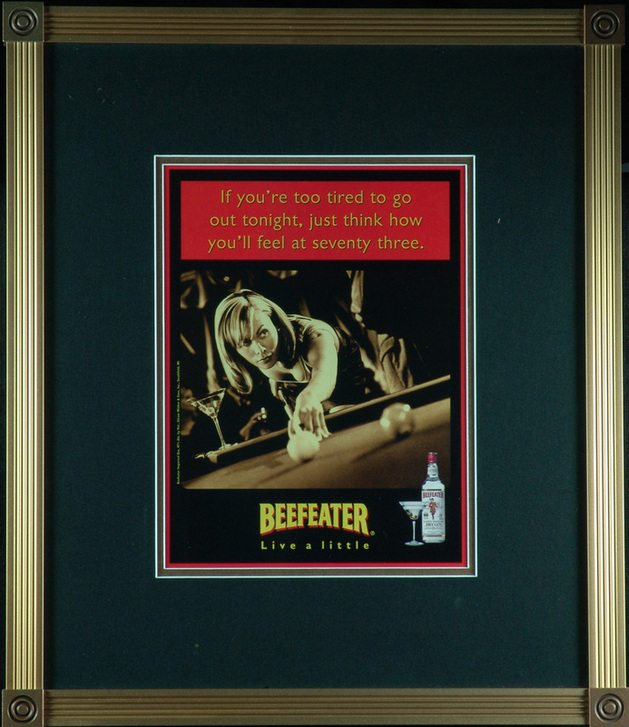
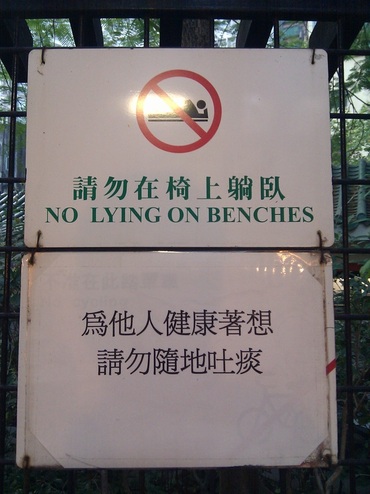
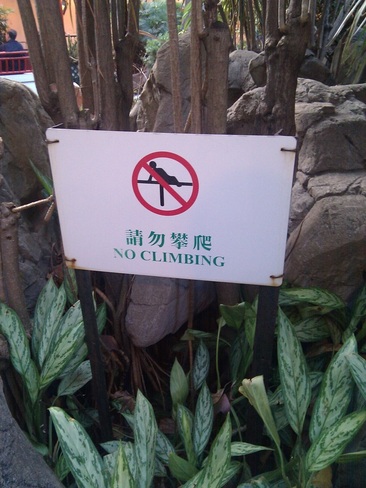
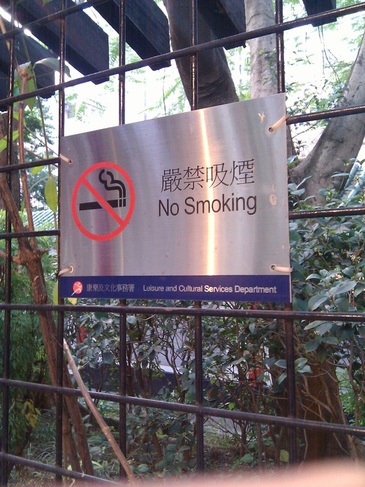
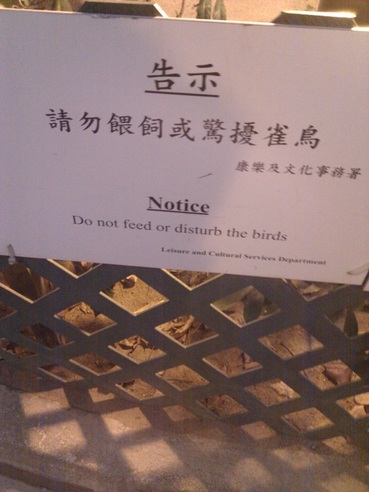
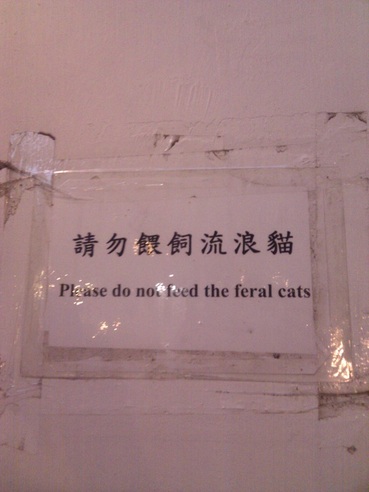
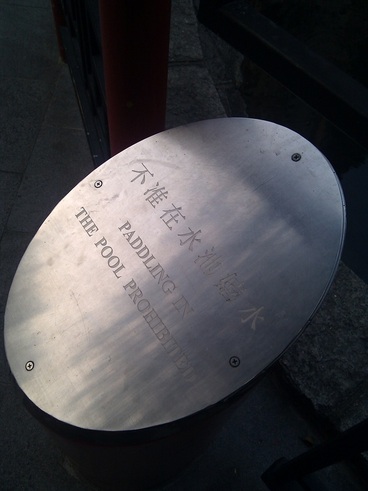
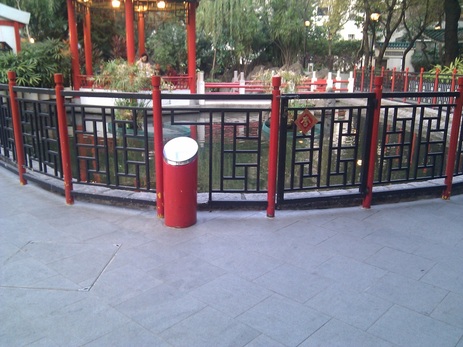
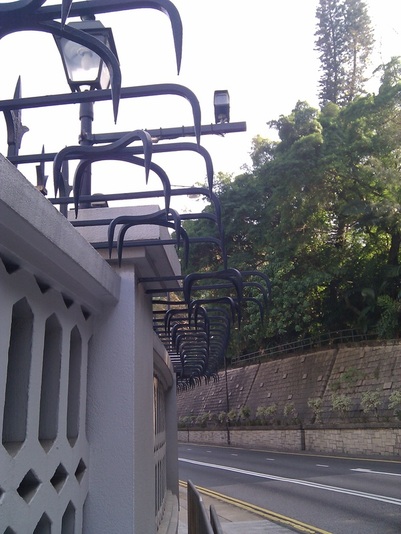
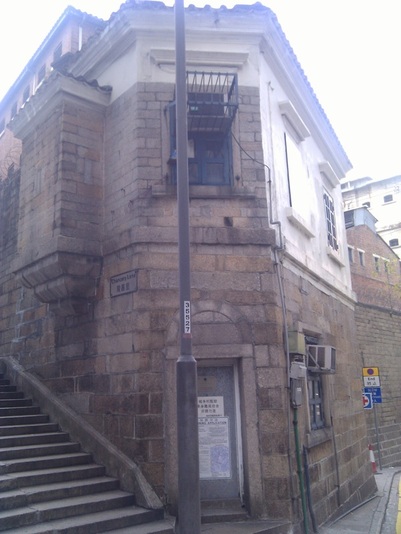
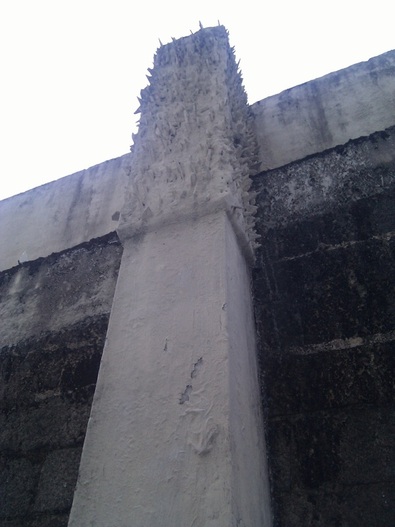
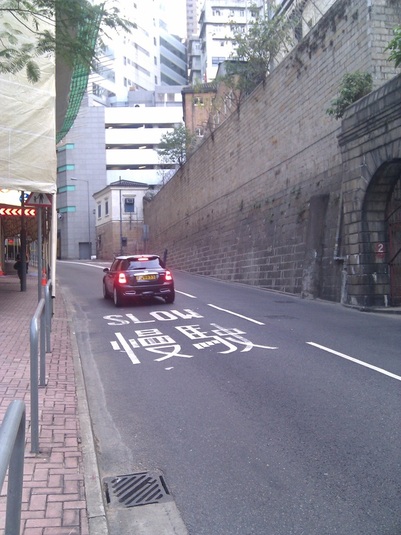
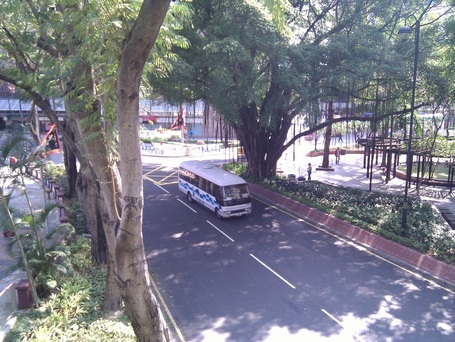
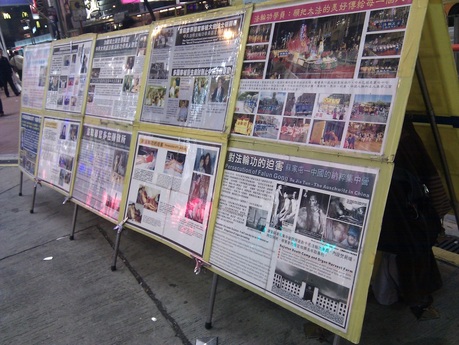
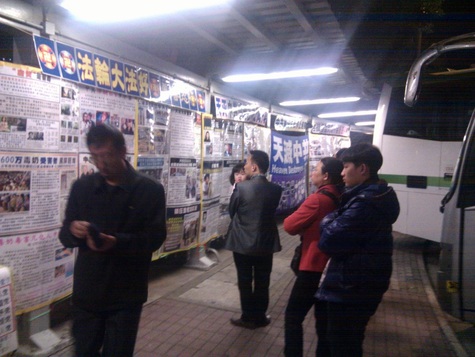
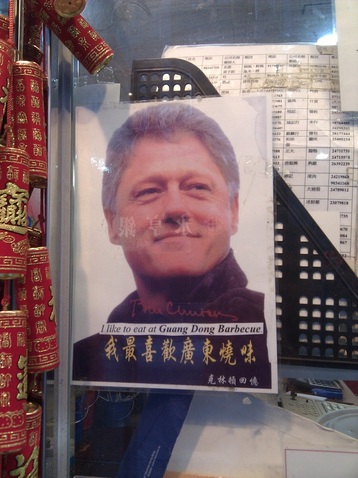
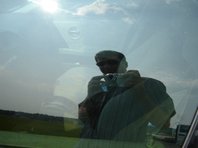
 RSS Feed
RSS Feed